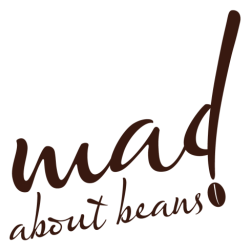Description
Our first blend with Tour de trails (www.tourdetrails.com)
Tasting Notes:
Tour de Trails are the original punks of trail running in Australia, running dirty since 2014. Owner Chris has always been a confessed ‘coffee punk’, liking his caffeine hit in the form a piccolo before hitting the singletrack and a strong flat white on return. Partnering with Mad About Beans for this release, he was straight up in his opinion that Timorese beans were the best he’s ever tasted, and that the trails there were of the same allure.
So here we are, a blend heavy on the Timorese that will kick your legs up the climb (which in Timor are steep and long). But don’t get too worried by the ‘punkness’ – this is actually warm mountain sunrise in a cup. The beans hail from the misty highlands of Timor-Leste (where Tour de Trails hosts a trail running adventure tour annually). It wraps you in a silky body of gentle sweetness, with bright mandarin orange sparkling at first sip, softening into velvety cocoa and rich caramel, before resting in a slow, lingering finish of milk chocolate and toasted hazelnut. This coffee carries you forward with its smooth, enduring rhythm, think of trail runners who move with the same strength and fortitude through this island’s wild terrain.
Every cup honours those rugged trails and untamed peaks to be explored in Timor-Leste and celebrates the stoic resistance heroes of Timorese Independence – the rebels, guerrillas and mountain punks who never gave up on freedom. Crafted for those who chase that freedom on the horizon one sip, one singletrack step at a time.
Crafted for those who chase the horizon — one sip, one step at a time.
Label: Trailpunk
Main source: Timor Este – Fatubessi Forest Gardens
Elevation: 1400 – 1700masl
Varietals: Tyipica & Timor
About the coffee | In the 1920s on the island of Timor, a fortuitous crossing of an Arabica and a Robusta plant was discovered in the forest gardens of Ermera district in the eastern highlands. Observations showed this new variety had the hardiness and high yields of its Robusta parentage, whilst exhibiting refined cup qualities owing to its Arabica make-up. Decades of study and development saw the ‘Hybrid of Timor’ go on to be crossbred
with Caturra to create Catimor varieties by 1967 – just in time to be introduced across the Americas and save those powerhouse coffee lands from being decimated by Coffee Leaf Rust (which straight Caturra is highly vulnerable to).
Meanwhile, for the promising coffee island, the Portuguese colonisation of the East was replaced in 1976 by Indonesian annexation with the West. Civil unrest became perpetual, a century-old coffee industry shrivelled up and infrastructures collapsed making exports untenable. Independence was recognised in 2002, making Timor Leste the first new state of the 21st century. The coffee sector made a sharp turnaround thanks largely to foreign investment responding to the country’s obviously great natural potential. Today, coffee is the country’s only cash crop, grown by about a third of all households and accounting for over 80% of total
exports.
Unable to compete on the world stage for quantity, all efforts are poured into increasing quality potential by way of training programs, improved infrastructure and land rehabilitation, realising far higher income to farmers. Most recently, innovative processing techniques are being well executed and turning specialty heads. With inspiring younger generations engaging proudly with their unique history and caring coffee culture, momentum towards exciting new profiles are sure to be realised in the near future.
This Ermera lot is a selection of Typica and Timor varieties, handpicked by some 160 women and men. Like all Timor-Leste coffees, it is shade-grown and farmed organically, by tradition. Soon after picking on the same day, individual smallholders pulp cherries to remove the skin and much of the mucilage layer before being
spread on raised drying tables or patios. Once moisture is reduced to ideal levels, parchment is delivered to Railaco Station for milling, density, colour and sorting prior to export.


Reviews
There are no reviews yet.